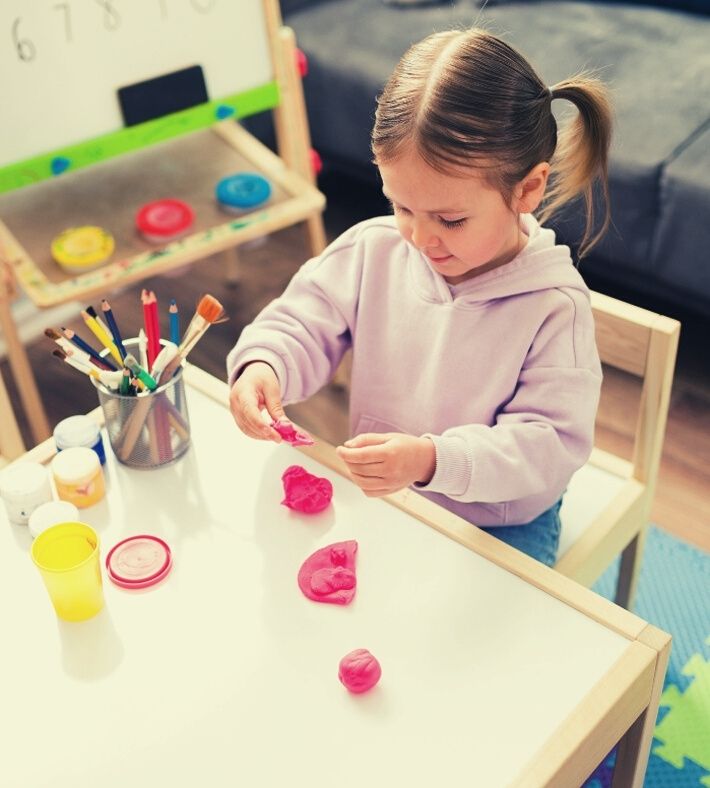Child Play Therapy
Play Therapy is best suited for children ages 3 – 9 and is a process of allowing children to express their feelings and inner world through the medium of play.
As adults we often gravitate to talk therapies in counselling, as we have the use of a vast vocabulary to express our thoughts, feelings and internal struggles. Children also need to make sense of their experiences but might not have all the words adults do. Luckily, it is said that play is the language of children. Play Therapy gives children the space to express themselves with a counsellor through play.
Play is the most natural way that children make sense of and express their thoughts, feelings and inner world.
Expression through play helps children process, organise and resolve internal struggles, and come to new conclusions. Just as adults benefit from the presence of a grounded and empathic therapist to listen and guide, children also need a safe person and a witness as they express themselves through play.
A child play therapist is that grounded witness, helping children come to terms with their experiences.
The therapist integrates aspects of mindfulness to help children regulate and understand complex emotions. Additionally, they may use emotion coaching to help children and parents communicate about the child’s feelings.
“Play is a child’s natural medium for self-expression.”
— Virginia Axline
Expressive Play & Sand Tray Therapy — The Process
We start off with a 1 hour Background and Assessment Intake session with you as the parent/guardian without the child present for now.
During this hour we will talk about your child’s presenting concerns as well as their background. We’ll get a sense of whether play therapy is right for your child. We also might talk about other support, resources or referrals that might help.
If play therapy seems like a good fit, we will go ahead and book the first play therapy session. The therapist will meet the child for a one-on-one session in our playroom at Repiphany. It is encouraged that a parent/guardian wait in the waiting room during the first play therapy session, so they are present if anything comes up or if the child or therapist need to check in.
If, after the first session, the child seems like they will benefit from play therapy, then we can book future sessions. The therapist will continue to offer support to the child and family throughout the therapy process. They’ll answer any questions and occasionally update and let parents know how it is going, while also keeping as much of the child’s confidence as possible.
Bi-weekly sessions are recommended to start, but the therapy can be continued, stopped and/or the session frequency changed at any time. This will depend on the child’s progress and family situation. The therapist will update parents if it seems the play is no longer helpful or if the child seems to have resolved things. It’s recommended that there be a goodbye session if therapy is going to be discontinued. This will give the child a sense that their play and expression is celebrated and important, and provides closure with an opportunity to say goodbye.
“Enter into children’s play, and you will find the place where their minds, hearts, and souls meet.”
— Virginia Axline


